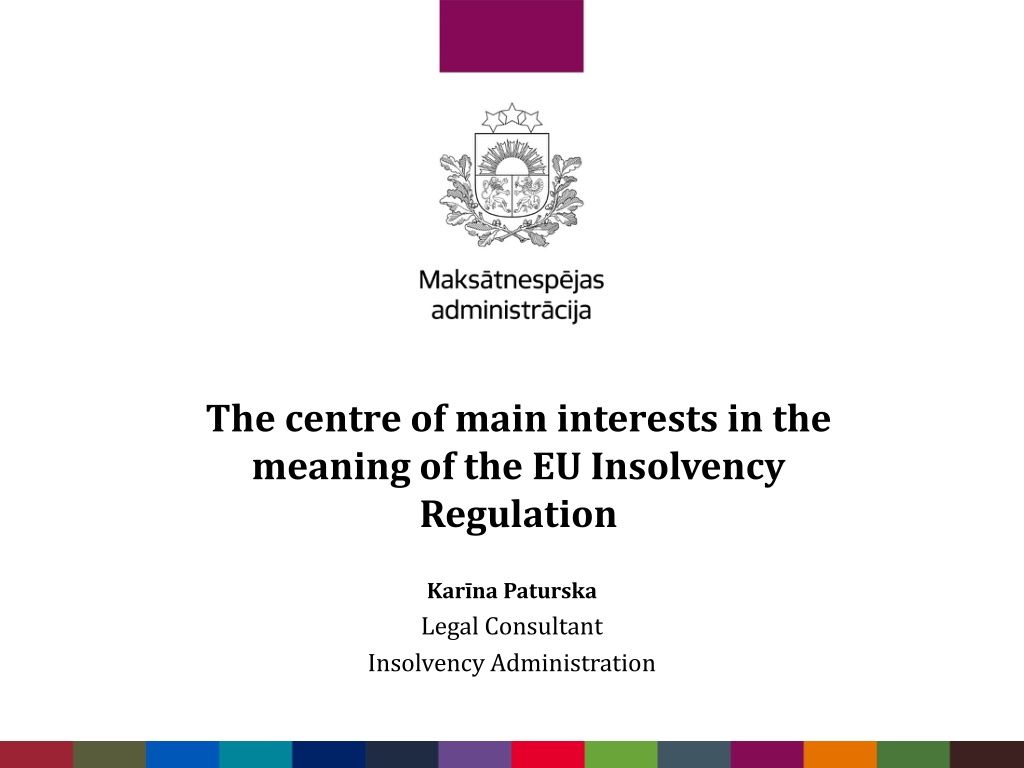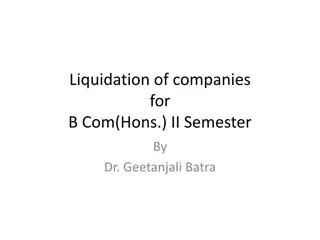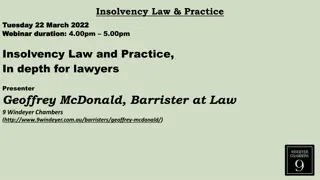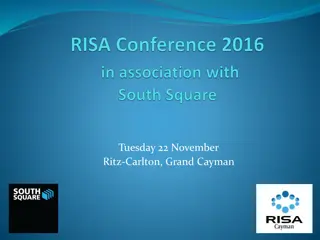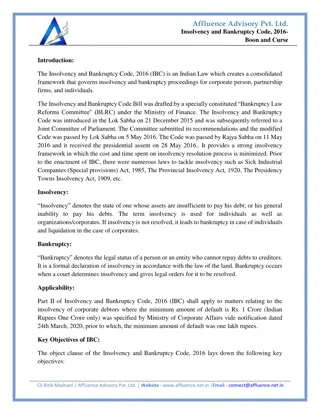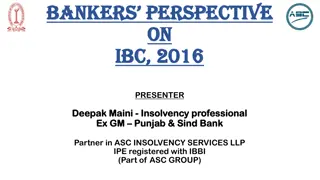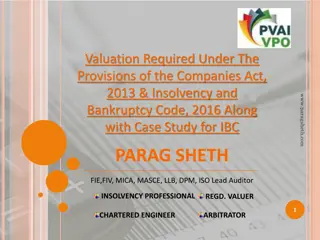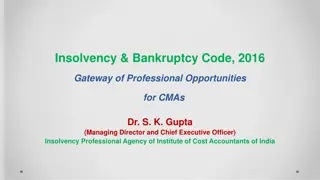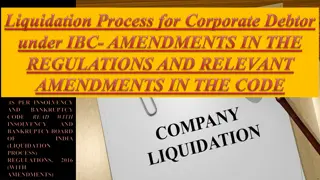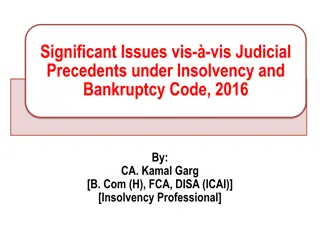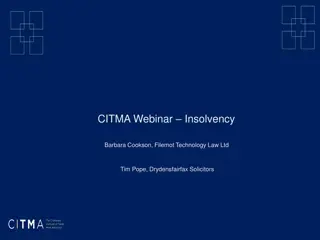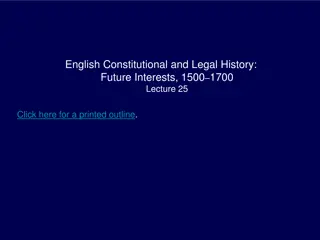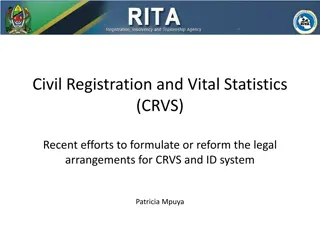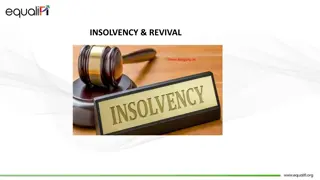Understanding the Centre of Main Interests in EU Insolvency Regulation
Centre of Main Interests (COMI) plays a crucial role in determining the jurisdiction for insolvency proceedings within the EU. This concept, defined by the Regulation 1346/2000, ensures that the debtor's administration of interests is ascertainable and objective, regardless of national legislation. While ECJ judgments emphasize the autonomous and uniform interpretation of COMI, there are challenges in aligning Latvian case law with ECJ standards regarding natural persons in insolvency cases. The criteria for determining COMI, including tax residency laws in Latvia, highlight the need for legal certainty and foreseeability in insolvency proceedings.
Download Presentation

Please find below an Image/Link to download the presentation.
The content on the website is provided AS IS for your information and personal use only. It may not be sold, licensed, or shared on other websites without obtaining consent from the author. Download presentation by click this link. If you encounter any issues during the download, it is possible that the publisher has removed the file from their server.
E N D
Presentation Transcript
The centre of main interests in the meaning of the EU Insolvency Regulation Kar na Paturska Legal Consultant Insolvency Administration
Centre of Main Interests (COMI) in the Regulation 1346/2000 COMI should correspond to the place where the debtor conducts the administration of his interests on a regular basis and is therefore ascertainable by third parties. COUNCIL REGULATION (EC) No 1346/2000 of 29 May 2000 on insolvency proceedings, Recital 13 2
C-341/04, Eurofood IFSC Ltd (I) The concept of the centre of main interests is peculiar to the Regulation. Therefore, it has an autonomous meaning and must therefore be interpreted in a uniform way, independently of national legislation. Jugdement of the European Court of Justice on 2 May 2006 In Case C-341/04 Eurofood IFSC Ltd, para.31 3
C-341/04, Eurofood IFSC Ltd (II) COMI must be identified by reference to criteria that are both objective and ascertainable by third parties. That objectivity and that possibility of ascertainment by third parties are necessary in order to ensure legal certainty and foreseeability concerning the determination of the court with jurisdiction to open main insolvency proceedings. Jugdement of the European Court of Justice on 2 May 2006 In Case C-341/04 Eurofood IFSC Ltd, para.33 4
Latvian Case Law on Determining COMI in natural persons insovelcy cases Case law shows that Latvian courts (both in the first and second instance) often determine COMI contrary to ECJ case law in context with the national regulation. A subject of insolvency proceedings of a natural person may be any natural person who has been a taxpayer in the Republic of Latvia in the previous six months and who is in financial difficulties (Section 127 of the Insolvency Law) 5
Law On Taxes and Duties Section 14. Classification of Taxpayers For the purpose of tax laws a natural person shall be considered a resident if: 1) the declared place of residence of such person is the Republic of Latvia, 2) such person stays in the Republic of Latvia for 183 days or longer during any 12 month period beginning or ending in a taxation year, 3) such person is a Latvian citizen, who is employed in a foreign country by the government of the Republic of Latvia. 6
Problem: promotion of forum shopping It is necessary for the proper functioning of the internal market to avoid incentives for the parties to transfer assets or judicial proceedings from one Member State to another, seeking to obtain a more favourable legal position (forum shopping). COUNCIL REGULATION (EC) No 1346/2000 of 29 May 2000 on insolvency proceedings, Recital 4 7
Centre of Main Interests (COMI) in the Regulation 2015/848 When determining whether the centre of the debtor's main interests is ascertainable by third parties, special consideration should be given to the creditors and to their perception as to where a debtor conducts the administration of its interests. REGULATION (EU) 2015/848 OF THE EUROPEAN PARLIAMENT AND OF THE COUNCIL of 20 May 2015 on insolvency proceedings, Recital 28 8
Thank you for your attention Kar na Paturska Legal Consultant of the Legal Department Insolvency Administration E-mail: karina.paturska@mna.gov.lv
